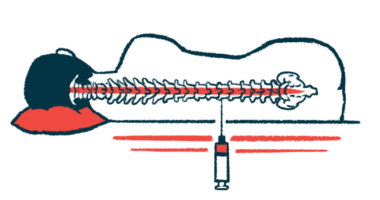FDA Grants Jan. 11 Meeting to Discuss Future of NurOwn for ALS
Agency to speak on its refusal to review BrainStorm cell-based therapy

The U.S. Food and Drug Administration (FDA) has granted a Type A meeting to BrainStorm Cell Therapeutics to discuss the agency’s refusal to review NurOwn as a treatment for amyotrophic lateral sclerosis (ALS).
According to the FDA, type A meetings are used for “an otherwise stalled product development program,” to talk about and settle differences between regulators and the developer of a potential therapy.
The upcoming meeting has been set for Jan. 11.
“We look forward to the Type A meeting which will provide an opportunity to discuss the path forward for NurOwn in ALS, including a possible Advisory Committee Meeting,” Chaim Lebovits, CEO of BrainStorm, said in a company press release.
The meeting will focus on the contents of a refusal to file letter issued by the FDA following BrainStorm’s new Biologics License Application (BLA) for the stem cell-based therapy.
BrainStorm seeking new ‘path forward’ for NurOwn
NurOwn is a cell-based therapy that requires first harvesting mesenchymal stem cells from a patient’s bone marrow. This is followed by a period of cell maturation, in which cells are induced to produce large amounts of signaling molecules that promote nerve cell health and growth. The modified cells are then returned to the patient via a spinal canal injection.
BrainStorm carried out a Phase 3 trial (NCT03280056) to test the safety and efficacy of NurOwn in a group of 189 adults with rapidly progressing ALS. Patients received three injections of either NurOwn or a placebo, given every other month, and were then followed for about seven months (28 weeks).
Results showed that NurOwn was not significantly more effective than a placebo at slowing disease progression, as assessed with the ALS Functional Rating Scale-Revised (ALSFRS-R). This meant that the trial failed to meet its primary goal.
However, Brainstorm argued that the large proportion of patients with advanced disease in the trial may have masked NurOwn’s effects.
Such a population already has the lowest scores in some subscales of the ALSFRS-R, which creates a “floor effect” that prevents changes in disease progression from being properly detected, the company said.
Indeed, subsequent analyses that excluded patients with more severe ALS showed that the therapy has the potential to slow disease progression in a clinically meaningful manner compared with a placebo.
However, the FDA still declined to review the BLA requesting NurOwn’s approval, citing insufficient evidence of effectiveness to support it. Regulators also cited concerns related to chemistry, manufacturing, and control procedures.
Faced with the FDA’s rejection, Brainstorm submitted a request for the Type A meeting to discuss the situation.
Along with the request, the company provided an extensive briefing package addressing the FDA’s concerns, expressing confidence in “achieving quick alignment with the FDA” on these matters, Lebovits said in the press release concerning the submission.
We believe that an advisory committee meeting would serve as an important part of the review process
The FDA’s refusal to review NurOwn also prompted a response from the ALS community. Two open letters in favor of NurOwn’s review were published, one from a group of ALS patients who received NurOwn during clinical testing, and another authored by U.S. military veterans with ALS.
The letters urged the FDA to hold a public advisory committee meeting to discuss the therapy with patients and ALS experts — including healthcare professionals who followed patients treated with NurOwn — and allow their voices to be heard and considered in the debate.
At the scheduled Type A meeting, Brainstorm will focus on securing an advisory committee meeting as the next step for a potential approval of NurOwn as an ALS therapy.
“We believe that an advisory committee meeting would serve as an important part of the review process and would provide an open forum for BrainStorm, together with medical experts, statisticians, patients and other members of the ALS community to discuss the body of clinical evidence supporting NurOwn,” Lebovits said.
The company plans to provide further updates after receiving the minutes from the meeting, or “when we have more clarity on the next steps in the approval process,” Lebovits added.







